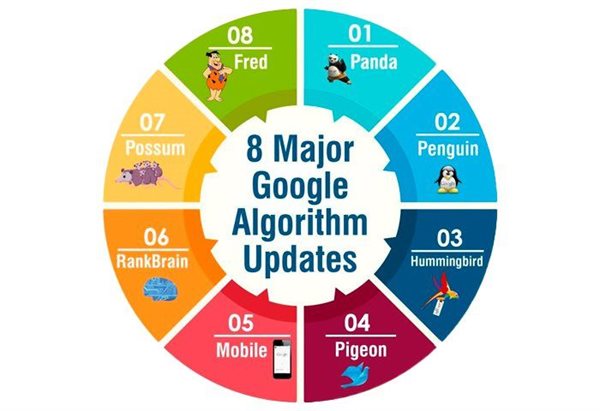Google's changing algorithm

Google is constantly striving to optimise the user experience and deliver the best possible results for a search query. In order to achieve this effectively, Google executes regular updates to its algorithm (a defined set of instructions or mathematical rules given to a computer). In the past, updates were few and far between, but this has now changed to include thousands of annual updates.
Improve search quality
There’s a certain amount of dark magic at play since the search engine will rarely give too much detail about the update. Google’s algorithms form part of an intricate system that is utilised to bring in data from the search index – the search engine makes use of a combination of algorithms and ranking signals to deliver webpages ranked by relevance on the search engine results pages.
While it can be frustrating to keep up with the rate of change, these improvements are necessary to accurately determine page rankings, offer personalised search experiences for all users and to become more responsive in suggestions given to users that maximise their search term possibilities. The updates also weed out unsavoury websites, searches and black-hat tactics that serve a negative purpose.
Enhance the user experience
The majority of the algorithm updates are extremely small and serve more of a background purpose, but there have been some major updates over the years such as Panda, Penguin and Hummingbird. Algorithm updates aren’t usually triggered by an individual’s online behaviour and consumer behaviour, but the updates do have a positive knock-on effect for the user in the long run, as these updates ensure the online user experience is smooth and well-executed.

Two updates have taken place in 2020 so far – one in mid-January, January 2020 Core Update, which took about two to three weeks to complete. Not much information is available yet on this update, but Google is not known to always release detailed manifestos on their updates, so we’ll have to wait and see if more information is released. The second update occurred on 22 January, when Google announced URLs in featured snippets would cease to appear as traditional organic results. Featured snippets are considered promoted organic results, and this had huge implications for ranking and organic CTR.
Keep on top of it
Webmasters and SEO teams may not always know when an algorithm update is going to take place or how it will affect users – this depends on the update. Google may not state what the aim is because it could be something small to enhance the user experience or a major update to improve online-search safety. It’s thus best practice to be always up to date on SEO best practices to avoid any penalisation that may come as part of the update. Once an update has occurred, SEO teams are encouraged to read whatever information may be available on the update to ensure the website changes or elements are compliant with Google’s latest requirements.
- Africa’s creative future is now: Maxwell Ngari named CCO East Africa at Dentsu Creative17 Feb 10:02
- Africa leads boldly as dentsu welcomes new global CEO16 Feb 11:55
- Driving the future of creativity: Dentsu Creative SA ranks 5 in the region04 Feb 11:13
- Dentsu SSA doubles down on business transformation with key appointments03 Feb 09:03
- Real data. Real Africa. Real time. COPO owns African consumer truth13 Jan 10:48



























